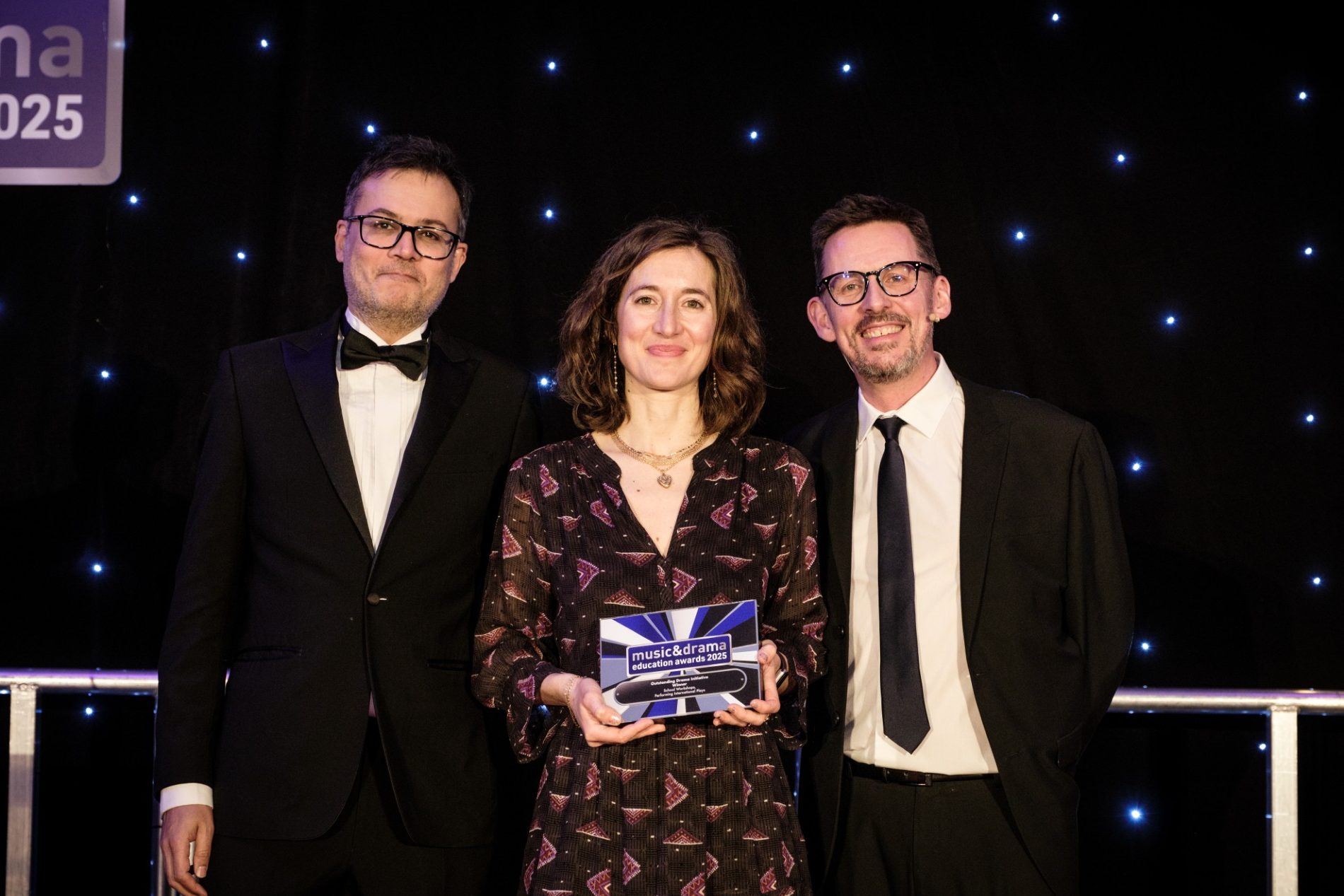
Performing International Plays, an enrichment drama and language workshop scheme using contemporary international plays to inspire young people to learn about local cultures, languages and histories, has won Outstanding Drama Initiative at the Music and Drama Education Awards 2025.
The project, led by Dr Margherita Laera at Kent’s School of Arts and Architecture alongside Foreign Affairs Theatre Company, was shortlisted for the award alongside the likes of the Royal Shakespeare Company, Birmingham Rep and the Polka Theatre. Foreign Affairs, who deliver the workshops, is a Hackney-based theatre company focusing on plays in translation and cross-cultural collaboration, led by Trine Garrett and Camila França.
Available for secondary school students at all levels from Year 7 to Year 13, and mixed-ability groups, the workshops have been delivered to schools across the South East of England including state schools such as Harris Academy South Norwood and Waterside Academy in Hackney, London, and independent schools such as St. Paul’s Girls School and Highgate School. More locally within Kent, workshops have been delivered at the Archbishop’s School in Canterbury. Workshops have been met with rave reviews and have encouraged students to explore new diverse theatre and languages alongside their studies.
The workshops are facilitated by highly skilled multilingual practitioners of relevant heritage and are especially tailored to each school’s students and their needs. Students have the opportunity to encounter one or more new plays by contemporary dramatists from Ukraine, Palestine, Cuba, Taiwan, South Africa, Italy, Germany, France and more.
Dr Laera said: ‘I am delighted that Performing International Plays has been recognised within the industry for its educational impact. International plays and translation can help students connect with important cultures, characters and stories that may appear distant but that actually matter here and now in our increasingly interconnected world. Our workshops demonstrate that the values of equality and representation matter, and that international theatre can make every pupil feel represented. We are starting to see a trend of more international plays being invested in and explored in education and publishing, which is really promising, and we are pleased to be part of this movement.’
As well as the workshops, Performing International Plays has an open-access website providing Drama educators with free content such as videos, essays and education packs to diversify the curriculum with work that speaks to and represents all students. 20 plays in 15 languages from across 6 continents are showcased on the website.